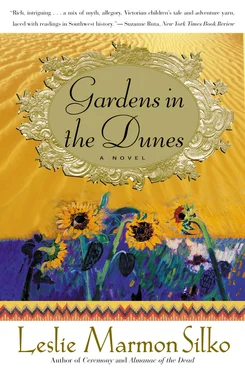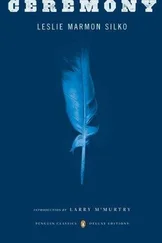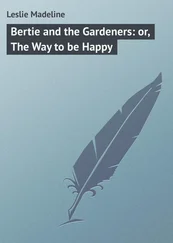Flocks of crows continued to arrive; the leafless cottonwoods were black with them roosting. They scavenged for oats and milo in the freshly harvested fields the white farmers had along the river.
Sister Salt brought out the practice baskets she made at Road’s End, and pronounced them good enough to sell to tourists off the trains. She didn’t want the baby around the strangers and left Indigo and her pets to watch the little grandfather while she went to the station. As long as the weather stayed dry, the tourists got off the trains during the stop, and each day Sister sold all the baskets she brought.
With her turkey, dog, and turtle baskets set out on the ground in front of her, Sister waited with the other Indian women on the driveway next to the station platform. Now the stationmaster barred the Indians from the passenger platform, but allowed them on the driveway for the amusement of the passengers who liked to photograph the Indians and their crafts. While she waited, Sister worked the damp yucca strips into turkey figures because those baskets always sold out first.
All morning, though, even before the train from the east arrived, Sister had an odd feeling of worry and sadness despite everything going along so well since their move from Road’s End. The train from the west was due, but its passengers usually bought less than the easterners, so Sister packed up her remaining baskets and went home early.
Even before she reached their shack, she could see a pile of bundles outside so she was not surprised to find Maytha and Vedna inside; but she was surprised to find Indigo with tears streaming down her face even as she gently bounced the little grandfather on her lap. Sister greeted the twins, then asked Indigo what was wrong.
Tears welled up in Indigo’s eyes and she looked at Maytha and Vedna.
“They took away your land?”
“Not yet!”
“Well why’s she crying?”
The twins seemed hesitant. It was something about the white woman, wasn’t it? They nodded. She’d been found wandering naked and dazed beside the road near Topock, at the northern edge of the Chemehuevi reservation. The twins heard about it from a guest at the beer-sampling party. The guest, an off-duty Indian policeman, said someone had beaten her head with a rock, then left her for dead beside the road. They later found the place it happened — her luggage was dumped and rifled and scattered in the ditch. Blond hairs and crusted blood were found on the heavy iron rock her attacker used; they found other, similar iron rocks nearby, dumped and scattered from small wooden crates.
“She must have been coming to Road’s End,” Maytha said, “because they found sacks of flour and sugar torn open—”
“Even fresh things like bacon and apples—”
“Wasted! Dumped out on the ground!”
Sister knelt next to Indigo and put her arms around her while the little grandfather grabbed hold of her and crawled into her lap to nuzzle her breasts.
“There, there, little sister, don’t cry. We’ll pray for your friend.”
♦ ♦ ♦
She was frozen in the gray ice swirling around her head; it drilled into her skull until she screamed, but hands pinned her arms and a sharp weight pressed her flat until she lost consciousness. Later she woke to the taste of blood; her tongue and lips were bitten and bleeding. How did this happen? What sort of dream was this where the pain only increased as she woke? She slipped back from the pain into the comfort of the dim gray light and did not try to surface again for a long time.
Later she woke in the sand beside a road with a crushing pain in her skull so terrible she could not see clearly at first. She attempted to stand but the pain and dizziness brought her to her knees. The sun overhead warmed her, and after a while she was able to stand but the pain made her vomit, and she went only a few steps before she sat down by the road to wait for help.
Indians found her. She remembered that. Had she managed to walk a bit farther down the road? Men and women approached, then dropped their rakes and hoes to run to help her. From the shocked expressions on their faces, she realized she must look terrible. It wasn’t until one of the Indian women wrapped a piece of cloth around her shoulders that she realized she was naked. She felt something warm running down the back of her head, and when she reached back to touch it, fresh blood smeared her hand. She felt hard crusts matted in her hair. One of the women spoke English and told her not to be afraid, they would take her to their house and send for help. They steadied her between them as they slowly walked; even then the pain and dizziness caused her to stumble and she had to vomit again. They helped her down to a soft pile of blankets and quilts, where she sank into the gray light again.
Later the women helped her into a blue gingham dress much too large for her before the men lifted her into the back of an old wagon they filled with blankets and quilts. The wagon went slowly enough, but even the least bump sent fiery pain through her skull, so she had to hold it tight in both hands.
When the wagon finally stopped and she opened her eyes, she saw the familiar downtown storefronts of Needles. As soon as the deputy sheriff came out, the store clerk, bank teller, and others gathered around the wagon to stare. Another deputy helped carry her from the wagon to the barber’s chair.
As he gently snipped the hair from around the wound, the barber explained he’d studied medicine for two years in Philadelphia; the nearest doctor was in Kingman. She was lucky to be alive because her skull was cracked. The alcohol stung and ran into both her ears as he flushed the wound of dirt. The barber and his wife kindly offered a cot in their pantry until she got back on her feet. The barber offered to send a telegram to her family but she felt too dizzy and weak to reply.
For three days Hattie slept, waking only to drink water or use the chamber pot. On the fifth day her appetite returned and she ate a bowl of potato soup. Later the barber’s wife heated water for a bath; as soon as she sat in the warm water she felt the other wounds her attacker inflicted, and tears of anger filled her eyes. She found so much sand with weeds in her clothes she put on the blue gingham dress again.
Her rescuers had gathered up what they could of the scattered clothing and belongings, but the little wooden box with the carved gemstones were gone. In a way, the loss of the carvings was worse than the outrage done to her body; she had no recollection of that, but her anguish over the carvings grew by the hour. The gemstones were perfect and beautiful, yes, but in their presence Hattie felt cherished in the way her father loved her. Now they were gone.
She cried so bitterly the piercing pain returned to her head and made her vomit; the barber gave her laudanum, which dulled the pain. The low ceiling of the pantry resembled a tomb. She was sorry she survived the attack — how much easier death would be than this.
The deputy came to make the report the next day. She was careful to move her head slowly and to answer his questions slowly or the pounding pain in her skull came back. The last thing she could remember was checking into the hotel from the train station the day she arrived; she lost all memory of the day of the attack. The deputy asked if there were other injuries beside the blow to the head, and Hattie could tell by the deputy’s averted eyes he wanted to know if she’d been raped. She hesitated, then nodded, but she didn’t cry; she didn’t feel anything.
The deputy did not look up from his report.
“All your money and other valuables were taken?”
She nodded, then as she described the little box of carved gemstones, tears filled her eyes.
Though she could not remember, it seemed obvious she was on her way to Road’s End the day of her attack. Surely the desk clerk at the hotel remembered who drove her — after all, she checked out that morning with a good many bundles and all her luggage. The deputy kept writing. At last he looked up, and promised to get back to her after his investigation.
Читать дальше












